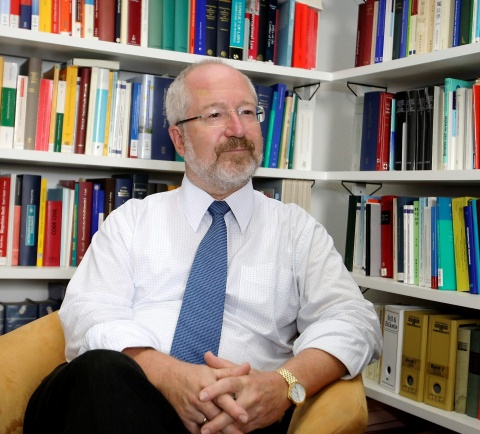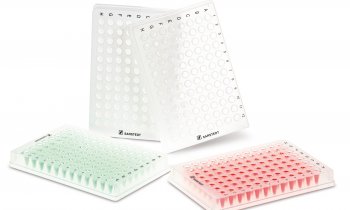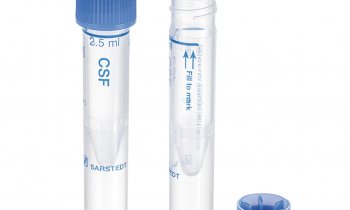Source: Fotolia/Jezper
Article • Questioning the Genetic Diagnostics Act
Self-help healthcare or face a penalty?
The fact that genetic research can reveal hereditary diseases has been transferred to medical practice for some time and, since 2010, the Gene Diagnostics Act (GenDG) has regulated permissible DNA tests in medical diagnostics and pedigree in Germany.
Report: Eva Britsch
After all, the GenDG is not applicable at all to the field of research, so there are numerous open questions on the border between research and the clinic
Jochen Taupitz
Precise predictions are also possible through many other medical data, such as biomarkers, and ‘are becoming increasingly important in predictive diagnostics,’ Taupitz pointed out. He is calling for a ‘broader positioning’ of this topic and sees a concrete need for regulation of somatic genetic properties. ‘Both germ line and somatic mutations can be detected by examining the tumour tissue,’ he explained. Here, it is unclear whether the Gene Diagnostics Act is applicable if a germ line analysis is only carried out for comparative purposes to assess the significance of a somatic mutation. Taupitz also sees serious ambiguities in the elucidation of all genome sequencing: ‘everything could come out of this,’ he believes.
It was unclear whether a doctor could limit himself to ‘certain groups of diseases’, for example only those which are treatable. Taupitz identifies a turnaround in the distinction between diagnostic and predictive examinations that would not yet be reflected in the Genetic Diagnostics Act. Due to the increasing shift of the concept of disease to pathogenic processes and risk factors, it can hardly be ‘maintained’.
The law also leaves open whether unevaluated raw sequence data should be stored for later medical questions or destroyed. Last but not least, Taupitz explains, ‘After all, the GenDG is not applicable at all to the field of research, so there are numerous open questions on the border between research and the clinic!’
To know or not to know – squaring the circle

Taupitz decidedly draws attention to the fact that there will be more frequent additional findings in genetic diagnostic examinations in the future. The reason is that whole genomic analysis methods are being used increasingly in research as well as in everyday clinical practice. For physicians, this raises the question of squaring the circle, how to deal with additional findings and the right not to know in practice.
On the one hand, according to Taupitz, this knowledge could put a great strain on patients, especially if the disease is not at all treatable. But, even then there are patients who want to prepare themselves beforehand, whilst others prefer to have a carefree future. ‘From a legal point of view, this is about the right to informational self-determination,’ Taupitz says. The right not to know means that knowledge about the person concerned must not be ‘imposed on him or her without further ado’. This results in a ‘practical problem’ because the physician cannot simply assume that an affected person does not want to take note of the results. Taupitz clarifies this: To be able to exercise his right not to know, the person concerned must at least know the basics of what he does not want to know – the exact communication of this knowledge could already violate his right not to know. In the field of research, the expert recommends that ‘before donating biomaterials, a concrete agreement should be reached as to whether and which possible results should be communicated.’
How might all this develop? Taupitz thinks society will come under pressure to develop in citizens a stronger perception of self-responsibility – effectively to gain knowledge about one’s own health predispositions and adapt one’s lifestyle accordingly, or to use preventive examinations – those who do not follow this may face financial disadvantages. Therefore, Taupitz considers a penalty system in genetic diagnostics to be quite realistic, but not desirable.
Meanwhile… a long-term study raises ethical questions regarding the UK Biobank
Professor Nils Hoppe, professor of life sciences law and ethics at the Centre for Ethics and Law in the Life Sciences at the University of Hannover, is currently drawing attention to dilemmas arising from the United Kingdom’s Biobank’ project – a large long-term biobank study in the United Kingdom (UK) that investigates the contribution of genetic predisposition and environmental exposure (including nutrition, lifestyle, medicines, etc.) to disease development. Begun in 2006, the study volunteers will be followed for at least 30 years.
Hoppe points out that the UK Biobank cannot provide advice and support in the provision of health data. Even negative effects are possible, he foresees, such as adverse effects on insurance and employment status. ‘For these reasons, the UK Biobank will generally not provide participants with health information, and a clear explanation of this policy (and the few exceptions) will be included in the participants’ information material.’
The greatest challenge arises from imaging. Biobank employees are in direct contact with the participants and may already have discovered additional findings. This would give rise to a legitimate expectation on the part of the test persons. There are a number of ethical, social and legal questions (ELSI) in this project that have not yet been resolved.
Profile:
Dr Jochen Taupitz is Professor for Civil Law, Private International Law and Comparative Law at Heidelberg and Mannheim Universities in Germany, in which he is also managing director of the institute for German, European and International medical law, health legislation and bioethics. Taupitz studied law from 1973 to 1978 in Göttingen and Freiburg, gained his doctorate in 1981 and habilitation in 1988, just before he was appointed a professor in Göttingen. He is a long-term member of a great number of panels, commissions and advisory boards in the medical field.
10.07.2018











